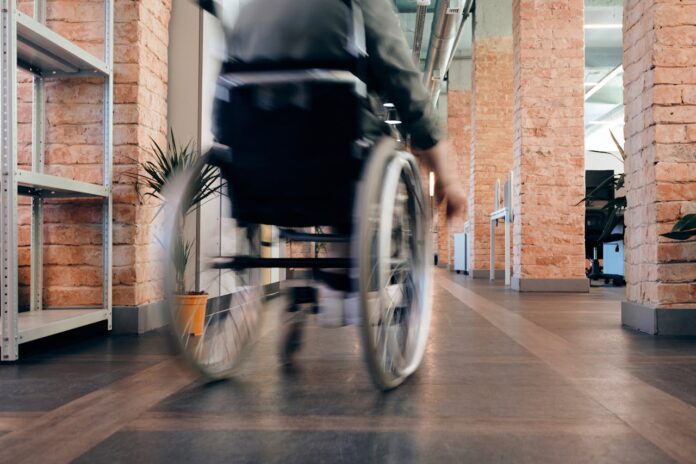Life can be full of trials and tribulations. Sometimes many people have to deal with certain issues that render them disabled. They can develop physical disabilities due to injury, accidents, or the side effects of medication. Sometimes the disability can be genetic or congenital. Any disability can limit the functional ability to work or lead a normal life. It can be difficult for a person with any sort of disability to live without stress or anxiety. Many people also find themselves falling into depression. For such individuals, it is necessary to help them feel positive and confident. For this, it is essential to provide them with the necessary treatment. Physiotherapy can be quite beneficial for disabled people. Different disabilities require different methods of treatment to help individuals.


Physiotherapy and Disabilities
Disabilities can be of different types. Some are intellectual disabilities, and others are physical disabilities without any neurological or psychological effects. A physiotherapist administers treatment according to the condition and the patient’s needs. Some conditions, such as paralysis, require detailed treatment that often extends over a long period. Other conditions, such as minor cerebral palsy, are disabilities but don’t require extensive treatment as the condition is not severe. A physiotherapist should be consulted at the right time so that the treatment can begin promptly, either improving the condition or preventing it from worsening.
The Importance of Therapy
A significant part of the science of physiotherapy is helping people with disabilities lead a normal life. Physiotherapists assist individuals with disabilities in performing everyday tasks, often with support, and improving their ability to perform movements as basic as sitting or walking. The importance of physiotherapy in dealing with people with disabilities cannot be overlooked. Physiotherapy is often recommended as the primary source of treatment for many disabilities. A physiotherapist works closely with the patient and employs different types of treatment to help the patient manage their condition.


Physical and Intellectual Disabilities
There are many disabilities that require physiotherapy treatment. Depending on the condition, the treatment is provided either at a clinic or at home.
- Paralysis: This condition occurs when nerve signals cannot reach the muscles, resulting in the inability to move the affected part. When there’s paralysis of only one limb, it is called monoplegia. When both lower limbs are involved, it is called paraplegia, and when all the limbs are affected, it is called Quadriplegia. Physiotherapy is required so that the basic movements can be done with the help of a therapist.
- Cerebral Palsy: This condition is caused by irreversible damage to the developing brain. It is congenital. Physiotherapy is often required to help with basic movement-based tasks or to provide assistance with them.
- Amyotrophic Lateral Sclerosis (ALS): In this condition, neurons deteriorate. This affects muscle function and, in some cases, results in cognitive disability and difficulty with speech along with motor disability. It is a fatal condition that often results in respiratory failure.
- Down Syndrome: This genetic disorder causes intellectual disability and issues with motor functions. Physiotherapy is required to assist the person with proper movement. As this condition is generally lifelong, physiotherapy is also given for life.
Children with Disabilities and Physiotherapy
Many children are born with certain issues that cause lifelong disabilities. For them, physiotherapy should become an essential part of their lives. One of the most well-known conditions is Autism. Physiotherapy plays a significant role in helping individuals with autism. In autism, there’s a lack of development in social skills and behavioral issues. Physiotherapy helps teach the patient how to develop and maintain normal movements such as walking, sitting, and lying down. Another condition is Spina Bifida. This is a condition where the spine has not be properly developed at birth due to a lack of spine development during fetal growth. This causes difficulty in walking due to paralysis in the legs and loss of bowel and bladder control.


Dealing with Disabled Patients
Apart from the physical treatment provided to someone with a disability, psychological treatment is as important as the physical aspect. Therapists need to approach people with disabilities with extra care and patience. People with disabilities often suffer from conditions such as depression and anxiety, so it becomes crucial for a therapist to uplift them during treatment and keep them positive about their life and therapy. Some conditions, such as paralysis or ALS, may require lifelong treatment, so it is important to approach the patient with positivity and respect.
Physiotherapy is provided for various conditions. It helps a person regain their ability to perform everyday tasks. Physiotherapy is a necessary part of the treatment for people with disabilities. Most of the time, physiotherapy is referred by the general practitioner treating the patient, but many patients also directly seek a therapist. Regardless of how the patient gets to the therapist, what is important is that the treatment is appropriate and effective for rehabilitation. People with disabilities should be handled with care, and a physiotherapist is generally experienced when it comes to dealing with people with disabilities, so they often provide emotional support in addition to physical treatment. This support often plays a big role during the treatment of someone with a disability.










